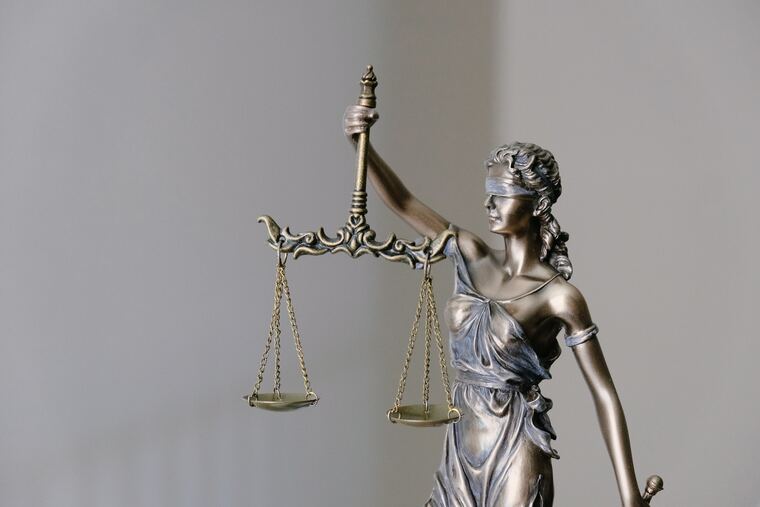Unveiling a new frontier in the world of legal discovery, ChatGPT has emerged as a game-changing tool for lawyers and legal professionals. Imagine having an intelligent virtual assistant at your fingertips, capable of swiftly analyzing vast amounts of data, extracting relevant information, and providing valuable insights – that’s exactly what ChatGPT brings to the table. In this blog post, we will explore how ChatGPT works in the realm of legal discovery, its benefits and potential challenges, effective integration strategies, and glimpse into the future where artificial intelligence becomes an invaluable asset in the legal industry. So fasten your seatbelts because we’re about to embark on an exciting journey into this cutting-edge technology!

What is ChatGPT and How Does It Work in Legal Discovery?
What exactly is ChatGPT and how does it revolutionize the field of legal discovery? Developed by OpenAI, ChatGPT is an advanced language model that utilizes deep learning techniques to generate human-like text responses. It can understand complex prompts and generate contextually relevant answers.
In the realm of legal discovery, ChatGPT acts as a powerful virtual assistant for lawyers, providing them with instant access to vast amounts of legal information. By inputting specific queries or prompts related to a case, lawyers can obtain comprehensive summaries, relevant precedents, and even draft persuasive arguments.
ChatGPT’s working principle lies in its training on massive datasets containing diverse examples from various sources such as books, articles, websites, and court cases. This extensive training enables it to comprehend nuanced legal concepts and effectively assist in tasks like document review, due diligence research, contract analysis – all crucial aspects of the legal discovery process.
One key advantage of using ChatGPT in legal discovery is its ability to handle large volumes of data quickly and accurately. Lawyers no longer need to manually sift through countless documents; instead they can rely on ChatGPT’s expertise in extracting pertinent information efficiently.
ChatGPT enhances collaboration among legal teams by acting as a knowledge-sharing platform. Lawyers can discuss their findings with this intelligent tool which generates insights based on previous similar cases or statutory provisions.
By leveraging natural language processing capabilities coupled with machine learning algorithms,
ChatGPT has emerged as an indispensable ally for lawyers navigating the intricate terrain of
legal discovery.
The Benefits of Using ChatGPT in Legal Discovery
The benefits of using ChatGPT in legal discovery are manifold. It offers a time-saving advantage. With its ability to process and analyze vast amounts of data quickly, lawyers can save significant amounts of time during the discovery phase. This means they can focus their energy on other important aspects of the case.
ChatGPT improves accuracy and efficiency in document review. It can sift through thousands or even millions of pages of documents with more precision than humans alone. This reduces the risk of missing crucial information that could impact the outcome of a case.
ChatGPT provides valuable insights and recommendations based on its analysis. By uncovering patterns and trends within the data, it can help lawyers identify key pieces of evidence or highlight potential risks that may have otherwise gone unnoticed.
Using ChatGPT in legal discovery promotes consistency across cases. Its algorithms ensure a systematic approach to reviewing documents, reducing human error and bias that may arise from subjective interpretations.
Incorporating ChatGPT into legal workflows enhances collaboration among team members by providing them with a centralized platform for sharing insights and findings. This fosters better communication and coordination throughout the entire discovery process.
By leveraging artificial intelligence technology like ChatGPT in legal discovery, law firms can gain a competitive edge over their counterparts who rely solely on traditional methods. The use of such advanced tools demonstrates innovation and adaptability while delivering higher quality results for clients.
Potential Challenges and Limitations of Using ChatGPT in Legal Discovery
As with any technology, there are certain challenges and limitations that come with using ChatGPT in legal discovery. While the system has shown great promise, it’s important to be aware of these potential obstacles.
One challenge is ensuring the accuracy and reliability of the information generated by ChatGPT. Since it relies on machine learning algorithms, there is always a possibility for errors or biases in its responses. Lawyers need to carefully review and validate the outputs provided by ChatGPT to ensure they align with legal requirements and standards.
Another limitation is the lack of contextual understanding that ChatGPT may exhibit at times. It doesn’t have real-time knowledge or access to current case law updates, which can pose challenges when dealing with rapidly evolving legal landscapes.
Privacy concerns should not be overlooked. Lawyers must consider how sensitive client information will be handled within the AI platform used for legal discovery.
Training ChatGPT requires large amounts of data, which could potentially raise issues related to intellectual property rights or confidentiality agreements if proprietary information is utilized during training sessions.
Integrating ChatGPT into existing workflows might require adjustments to accommodate this new tool effectively. This includes training lawyers on how best to use it and developing protocols for incorporating its outputs into their decision-making processes.
While these challenges exist, they can certainly be mitigated through careful oversight, validation processes, continuous improvement efforts around bias detection and correction mechanisms within AI systems like ChatGPT.
How to Effectively Integrate ChatGPT into The Legal Discovery Process
Integrating ChatGPT into the legal discovery process can be a game-changer, revolutionizing how lawyers and legal professionals approach their work. However, to ensure its effective integration, certain considerations need to be taken into account.
It’s crucial to train the model with relevant legal data sets that align with the specific needs of your practice or case. By fine-tuning ChatGPT on legal documents such as court opinions, statutes, and contracts, you can enhance its understanding of complex legal concepts and terminology.
Collaboration between lawyers and AI is key. Combining human expertise with AI capabilities allows for a more comprehensive analysis of large volumes of documents. Lawyers can leverage ChatGPT’s ability to quickly sift through vast amounts of information while providing valuable insights based on previous cases and precedents.
Integrating ChatGPT into existing workflows is essential for seamless adoption. Developing custom interfaces or utilizing existing platforms that incorporate natural language processing features can facilitate interaction between users and the AI system.
Effectively integrating ChatGPT into the legal discovery process requires careful planning and consideration but has immense potential to transform how lawyers handle document review tasks efficiently and accurately.
The Future of ChatGPT in The Legal Industry
The future of ChatGPT in the legal industry holds immense promise and potential. As artificial intelligence continues to advance, we can expect ChatGPT to play a crucial role in transforming the way legal discovery is conducted.
One exciting aspect of ChatGPT’s potential is its ability to streamline and automate time-consuming tasks. With its natural language processing capabilities, ChatGPT can assist attorneys in reviewing vast amounts of documents and extracting key information quickly and efficiently. This not only saves valuable time but also reduces human error.
As AI models like ChatGPT continue to improve, they will become even more adept at understanding complex legal terminology and nuances. This means that they will be able to provide more accurate insights and analysis when it comes to case research, contract review, or compliance monitoring.
Another area where ChatGPT shows promise is in enhancing collaboration between lawyers. By integrating chatbots powered by GPT into communication platforms used by legal teams, real-time assistance can be provided during discussions or negotiations. This can lead to improved decision-making processes and increased productivity within law firms.
There are challenges that need careful consideration as well. Privacy concerns regarding sensitive client information must be addressed adequately before widespread adoption of AI-powered tools like ChatGPT becomes common practice in the legal field.
The future of ChatGPT in the legal industry appears bright. As technology evolves further and AI systems become more sophisticated, we can anticipate greater integration of these tools into various aspects of legal work – from document analysis to contract drafting – ultimately revolutionizing how lawyers practice law.
Conclusion
As the legal industry continues to evolve, it is crucial for professionals to embrace innovative technologies that can streamline and enhance their processes. ChatGPT has emerged as a powerful tool in legal discovery, offering numerous benefits such as improved efficiency, increased accuracy, and enhanced collaboration.
By leveraging the capabilities of ChatGPT, legal professionals can access vast amounts of information quickly and efficiently. The AI-powered chatbot’s ability to understand complex questions and provide relevant answers makes it an invaluable resource in conducting legal research and review.
It is important to acknowledge that there are potential challenges and limitations associated with using ChatGPT in the context of legal discovery. As an AI system trained on large datasets from the internet, there may be biases or inaccuracies present in its responses. Legal professionals must exercise caution when relying solely on ChatGPT-generated information without proper verification.
Incorporating ChatGPT into legal discovery presents exciting opportunities for improving efficiency and effectiveness within the field. While careful consideration must be given to address challenges surrounding bias detection and quality control measures, embracing this new frontier offers immense potential for transformative change within the realm of law.


